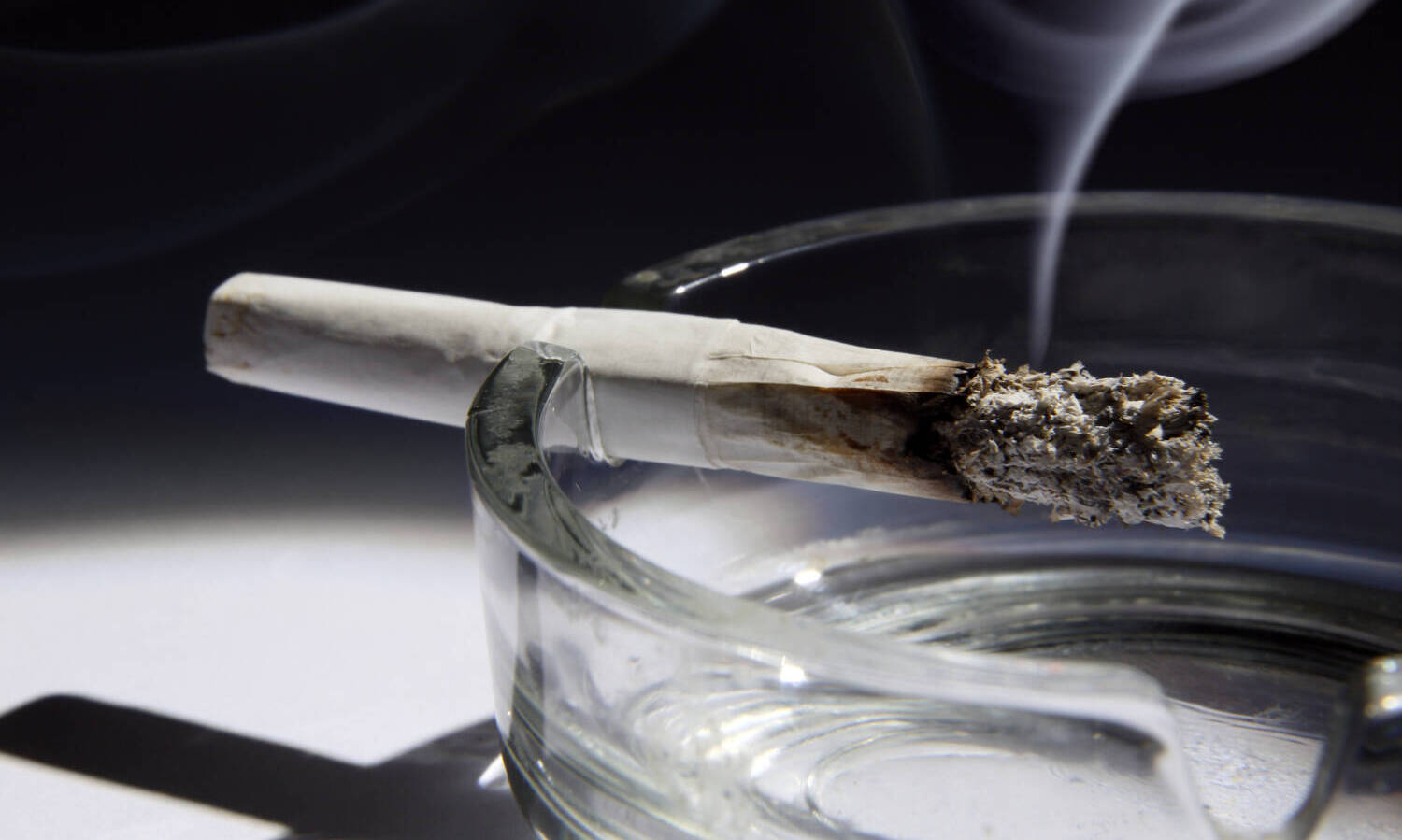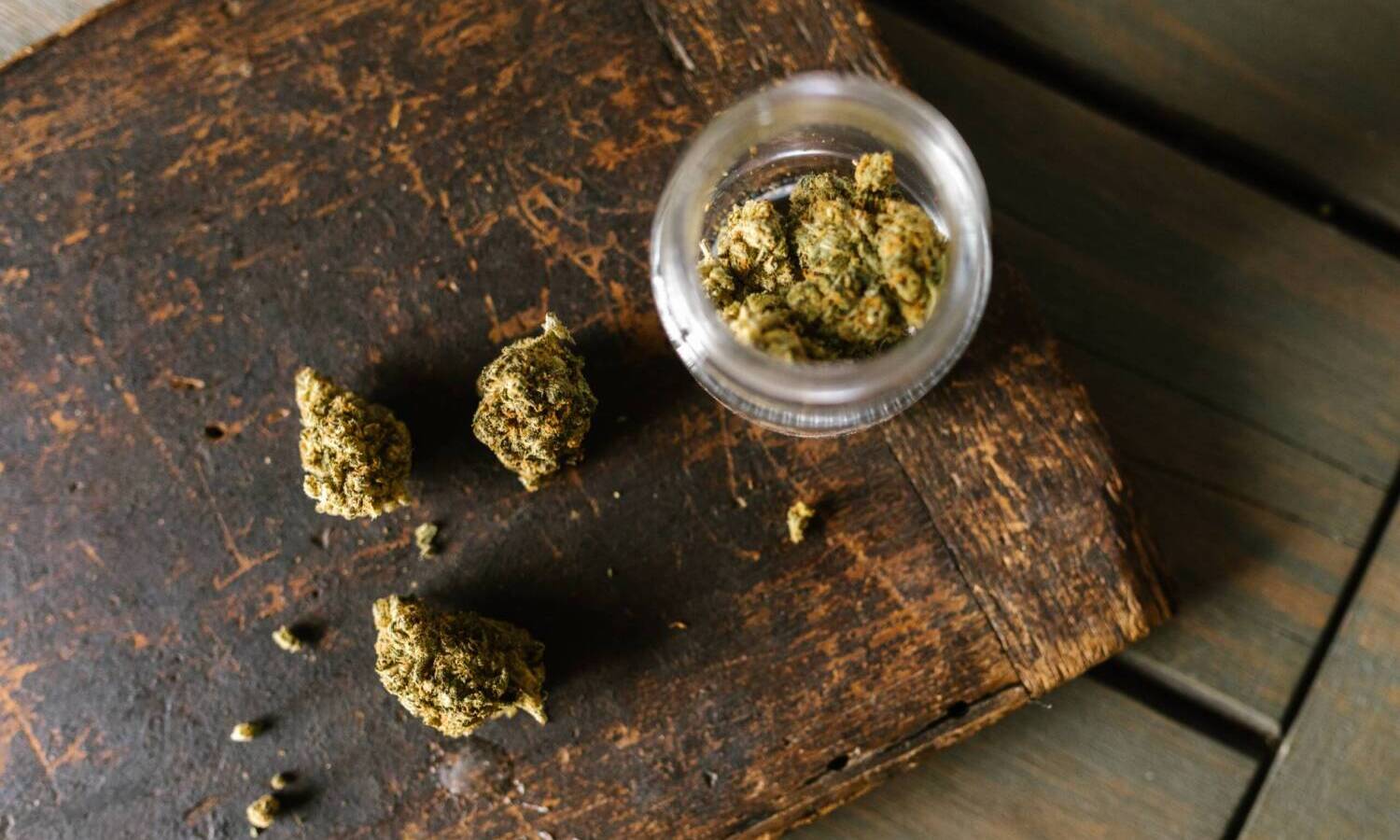The body has to break down the herb naturally. However, if you have a drug test coming up, there are some things you ought to do.
This article originally appeared on Cannabis.net and has been reposted with permission.
The duration it takes for weed to be detected in urine and other parts of the body are very important for numerous reasons. While it is very understandable that the War on Drugs and cannabis is gradually reducing, it doesn’t mean the coast is clear completely. There are numerous workstations where employees have to go through regular and random drug tests. A good number of such drug tests are wired to flag THC in marijuana which could result in uncomfortable issues for those involved.
Like a host of other drugs, numerous factors can gravely influence the duration of marijuana in the body.

Metabolism Of Weed In The Body
When marijuana is introduced into the body, there are numerous biochemical activities that occur before the notable psychoactive and physical effects. The major components of the natural herb that cause these effects are called cannabinoids. Tetrahydrocannabinol (THC) and cannabidiol (CBD) are the two popular cannabinoids that account for the effects. They’re also what is being tested for when drug tests are done, particularly THC.
After marijuana is ingested, THC is absorbed into different body tissues and organs, such as the heart, brain, and fat tissues. This is because it is fat-soluble which means that it easily binds to the tissues and organs of the body.
The percentage of THC that is not absorbed and stored is metabolized in the liver into two different metabolites: 11-hydroxy-THC and carboxy-THC. Following metabolism, these metabolites are excreted in the urine. The percentage of THC stored in the body tissues and organs returns to the bloodstream over time and is then transported to the liver where it is metabolized into the two metabolites and eliminated.
This metabolism process of THC accounts for the basis for different measures of drug tests for cannabis. It accounts for the different periods of stay of weed in different components of drug tests such as urine, saliva, hair, and blood.
How Long Does Weed Stay In Your System?
The use of urine is the most common sampling type for detecting the presence of marijuana in individuals. The general period of stay of weed in urine can be between 1-30 days after the last use. However, this range is dependent on the type of user being tested as different users will fall in different regions of this rage.
For the occasional user who only uses the natural herb up to three times a week, weed is likely to be detected up to three days after the last use. For the moderate users who use the natural herb four times a week, detection can range between 6-7 days.
RELATED: How Long Will You Be High? Here Are Some Things To Consider
The two types of users addressed earlier are still within reasonable periods which makes it easier for them to beat a drug test. The next type of user has it harder and they will require more care and work to beat such drug tests. Chronic users who use weed daily are likely to have weed detectable in their urine between 10 to 15 days after the last use. Chronic heavy users are those who use marijuana multiple times daily. This category of users will have weed detectable in their system more than 30 days after their last use.
RELATED: How Long Do Marijuana Edibles Stay In Your System?
Other sampling techniques for drug tests in the body include hair, saliva, and blood with different detection periods. Hair follicle tests have the longest periods with drug use being detectable for up to 90 days. Saliva testing is useful only when the weed has been smoked or ingested. Occasional use is detectable within 1-3 days while chronic use can be detected up to 29 days. Blood testing is useful for showing recent use of weed as weed is detectable within seconds of ingestion or inhalation. The reabsorption and redistribution of weed allow it to be detectable after 25 days.

Factors Affecting How Long Weed Stays In Urine
There are numerous factors affecting how long weed stays in urine and other sampling parameters. Here are some of the major factors.
- Amount of THC in the marijuana: Some cannabis strains have a higher percentage of THC than others. This along with the quantity of marijuana ingested can affect how long weed stays in your urine. The higher percentage content of THC and high dose will increase detection time.
- Duration since last use: The last use of the natural herb resets the clock for a period of detection irrespective of the frequency of use and amount used.
- THC metabolism of the user: Due to different peculiarities, some people are fast metabolizers while others are slow metabolizers. This can alter how long weed stays in your urine.
- Frequency of use: Occasional users are sure to have a lesser period of detection compared to chronic users who use the natural herb multiple times daily.
- Level of hydration
What To Do Before Taking A Drug Test
There are a number of tips out there on what to do for weed detox remedies. The simple truth is that the body still has to break down the herb naturally. However, if you have a drug test coming up, there are some things you ought to do.
First, take note of the proposed date of the test and calculate the last time of use needed for detection to know when to stop use. Proper physical activities such as exercise coupled with eating healthy and staying hydrated will speed up the breakdown process.
Bottom Line
How long and how much weed you have taken are determinants that influence how long weed stays in your urine. It is therefore important to always remember this whenever a routine drug test is around the corner.
This article originally appeared on Cannabis.net and has been reposted with permission.


